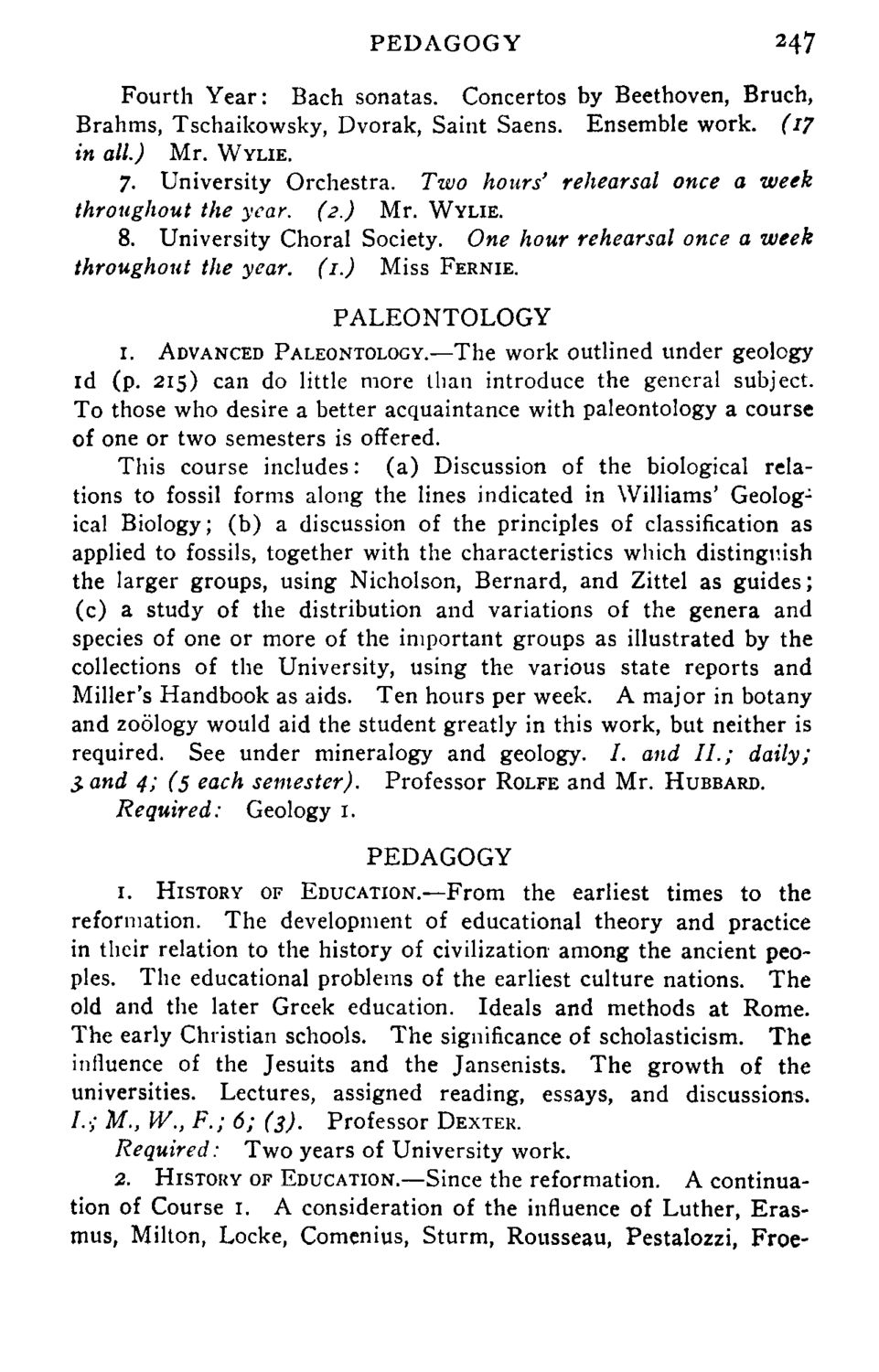| |
| |
Caption: Course Catalog - 1899-1900
This is a reduced-resolution page image for fast online browsing.

EXTRACTED TEXT FROM PAGE:
PEDAGOGY 247 Fourth Year: Bach sonatas. Concertos by Beethoven, Bruch, Brahms, Tschaikowsky, Dvorak, Saint Saens. Ensemble work. (17 in all.) Mr. WYLIE. 7. University Orchestra. Two hours' rehearsal once a week throughout the year. (2.) Mr. WYLIE. 8. University Choral Society. One hour rehearsal once a week throughout the year. (1.) Miss FERNIE. PALEONTOLOGY 1. ADVANCED PALEONTOLOGY.—The work outlined under geology id (p. 215) can do little more than introduce the general subject. To those who desire a better acquaintance with paleontology a course of one or two semesters is offered. This course includes: (a) Discussion of the biological relations to fossil forms along the lines indicated in Williams' Geological Biology; (b) a discussion of the principles of classification as applied to fossils, together with the characteristics which distinguish the larger groups, using Nicholson, Bernard, and Zittel as guides; (c) a study of the distribution and variations of the genera and species of one or more of the important groups as illustrated by the collections of the University, using the various state reports and Miller's Handbook as aids. Ten hours per week. A major in botany and zoology would aid the student greatly in this work, but neither is required. See under mineralogy and geology. /. and II.; daily; S.and 4; (5 each semester). Professor ROLFE and Mr. HUBBARD. Required: Geology 1. PEDAGOGY 1. HISTORY OF EDUCATION.—From the earliest times to the reformation. The development of educational theory and practice in their relation to the history of civilization among the ancient peoples. The educational problems of the earliest culture nations. The old and the later Greek education. Ideals and methods at Rome. The early Christian schools. The significance of scholasticism. The influence of the Jesuits and the Jansenists. The growth of the universities. Lectures, assigned reading, essays, and discussions. I.-; M., IV., P.; 6; (3). Professor DEXTEK. A continua- Required: 2. Two years of University work. HISTORY OF EDUCATION.—Since the reformation. tion of Course 1. A consideration of the influence of Luther, Erasmus, Milton, Locke, Comenius, Sturm, Rousseau, Pestalozzi, Froe-
| |